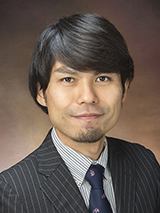In its continued commitment to offer the best possible treatment for rare conditions, Children’s Hospital of Philadelphia (CHOP) recently launched its Kabuki Syndrome Clinic, part of the Rare Diagnoses Program in the Roberts Individualized Medical Genetics Center (RIMGC).
The Kabuki Syndrome Clinic at CHOP is designed to provide families one place where they can consult with all necessary specialists and receive personalized care tailored to their individual needs. CHOP is one of the only pediatric centers in the world with the breadth and depth of expertise in managing children with this rare genetic condition.
Kabuki syndrome is a genetic condition characterized by atypical facial features, mild-to-moderate intellectual disability, short stature and skeletal differences. It draws its name from the facial features of many affected children, which resemble the makeup used by actors in kabuki, a form of Japanese theater.
Other common symptoms of Kabuki syndrome include developmental delay, congenital heart disease, failure-to-thrive, feeding difficulties, hypoglycemia due to hyperinsulinism and recurrent infections. Some symptoms are present at birth while others aren’t apparent until later. The severity of symptoms varies as well. For most children with Kabuki syndrome, there is no previous family history. However, familial occurrence has been reported in a small number of cases.

“Kabuki syndrome is a genetic diagnosis requiring comprehensive medical care from multiple medical specialists,” said Kosuke Izumi, MD, PhD, an attending physician in the RIMGC and the Division of Human Genetics at CHOP. “We are fortunate to have Dr. Amanda M. Ackermann from the Division of Endocrinology and Diabetes and Dr. Nina N. Sainath from the Division of Gastroenterology, Hepatology and Nutrition as key team members of this clinic. Taking advantage of our medical staff’s expertise, we aim to provide world-class care to children with Kabuki syndrome.”
The Kabuki Syndrome Clinic at CHOP features a multidisciplinary team that includes a clinical geneticist, a genetic counselor, a molecular geneticist, an endocrinologist, a gastroenterologist, an immunologist and a dietician. Additional pediatric specialists join the team as needed for each individual patient. The clinic began treatment with its first in-person patient visits in 2021.

“The cutting-edge work taking place at CHOP in places like in the Kabuki Syndrome Clinic has allowed our team to help thousands of patients, many of whom have rare diagnoses that may have otherwise been missed,” said Ian Krantz, MD, Director of the RIMGC, Director of the Center for Cornelia de Lange Syndrome and Related Diagnoses, and a Distinguished Chair in the Department of Pediatrics at CHOP. “This newly launched clinic is an excellent example of how we are able to provide a medical ‘home’ for patients with rare diagnoses and translate our research breakthroughs from the bench to the clinic in order to advance care and improve outcomes.”
Featured in this article
Specialties & Programs
In its continued commitment to offer the best possible treatment for rare conditions, Children’s Hospital of Philadelphia (CHOP) recently launched its Kabuki Syndrome Clinic, part of the Rare Diagnoses Program in the Roberts Individualized Medical Genetics Center (RIMGC).
The Kabuki Syndrome Clinic at CHOP is designed to provide families one place where they can consult with all necessary specialists and receive personalized care tailored to their individual needs. CHOP is one of the only pediatric centers in the world with the breadth and depth of expertise in managing children with this rare genetic condition.
Kabuki syndrome is a genetic condition characterized by atypical facial features, mild-to-moderate intellectual disability, short stature and skeletal differences. It draws its name from the facial features of many affected children, which resemble the makeup used by actors in kabuki, a form of Japanese theater.
Other common symptoms of Kabuki syndrome include developmental delay, congenital heart disease, failure-to-thrive, feeding difficulties, hypoglycemia due to hyperinsulinism and recurrent infections. Some symptoms are present at birth while others aren’t apparent until later. The severity of symptoms varies as well. For most children with Kabuki syndrome, there is no previous family history. However, familial occurrence has been reported in a small number of cases.

“Kabuki syndrome is a genetic diagnosis requiring comprehensive medical care from multiple medical specialists,” said Kosuke Izumi, MD, PhD, an attending physician in the RIMGC and the Division of Human Genetics at CHOP. “We are fortunate to have Dr. Amanda M. Ackermann from the Division of Endocrinology and Diabetes and Dr. Nina N. Sainath from the Division of Gastroenterology, Hepatology and Nutrition as key team members of this clinic. Taking advantage of our medical staff’s expertise, we aim to provide world-class care to children with Kabuki syndrome.”
The Kabuki Syndrome Clinic at CHOP features a multidisciplinary team that includes a clinical geneticist, a genetic counselor, a molecular geneticist, an endocrinologist, a gastroenterologist, an immunologist and a dietician. Additional pediatric specialists join the team as needed for each individual patient. The clinic began treatment with its first in-person patient visits in 2021.

“The cutting-edge work taking place at CHOP in places like in the Kabuki Syndrome Clinic has allowed our team to help thousands of patients, many of whom have rare diagnoses that may have otherwise been missed,” said Ian Krantz, MD, Director of the RIMGC, Director of the Center for Cornelia de Lange Syndrome and Related Diagnoses, and a Distinguished Chair in the Department of Pediatrics at CHOP. “This newly launched clinic is an excellent example of how we are able to provide a medical ‘home’ for patients with rare diagnoses and translate our research breakthroughs from the bench to the clinic in order to advance care and improve outcomes.”
Contact us
Ben Leach
Roberts Individualized Medical Genetics Center (IMGC)